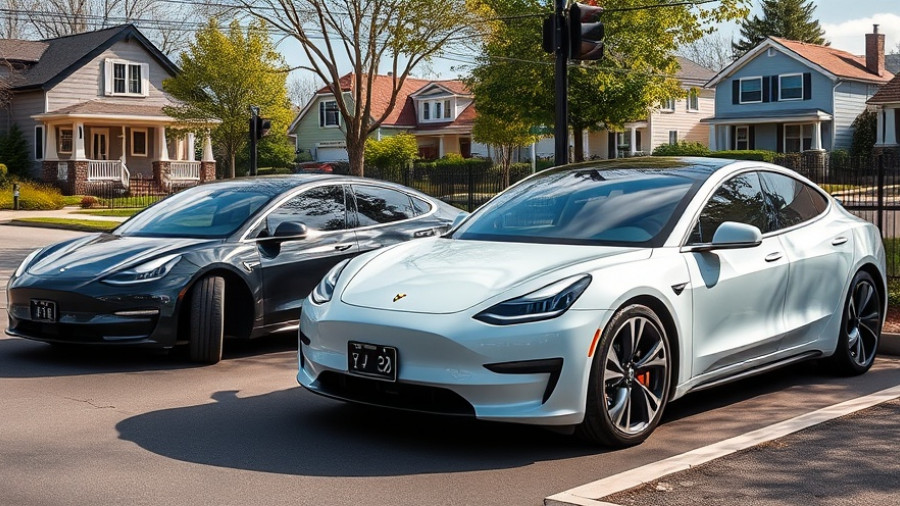
The Surge of French Social Leasing for Electric Vehicles
The renewed French social leasing scheme for electric vehicles is capturing significant public interest, with over 41,500 applications submitted within just four weeks of its launch, closely mirroring the excitement generated during its previous rollout earlier this year. The initiative aims to lease up to 50,000 subsidized electric cars, ensuring affordable mobility options for lower-income households.
Key Features and Eligibility Criteria
Under this scheme, residents can lease battery electric vehicles (BEVs) at remarkably low monthly rates. Although the program aims to close at 50,000 applications, the government has established a waiting list for potential applicants in case any applications are withdrawn. The threshold is likely to be reached swiftly, as history indicates from the initial rollout that demand exceeded expectations.
Eligible households must contain at least one working individual, report a taxable income of €16,300 or less per household member, and regularly commute more than 15 kilometers for work. This structure mainly targets part-time workers and single parents, bringing necessary vehicle access within their reach.
A Broad Selection of Affordable Models
The program offers a diverse range of approximately 30 electric vehicle models. Models such as the Citroën ë-C3, Fiat Panda, and Hyundai Inster can be leased for less than €100 per month, making electric mobility significantly more accessible. For those seeking more options, models from Volkswagen, including the ID.3 and ID.4, are also included, with leasing costs starting at €139 and €169 per month, respectively.
Sustainable Mobility: A Social and Environmental Initiative
This social leasing scheme represents a vital intersection of social equity and green policy, as it allows lower-income families to transition to cleaner transportation. With the French government covering about 27% of each car's total cost, and a maximum subsidy reaching €7,000, the benefits extend beyond recipients to positively impact public health and environmental outcomes.
Broader Implications for Green Living and EV Adoption
The successful uptake of the French social leasing program could serve as a blueprint for other countries looking to boost electric vehicle adoption, particularly among economically marginalized populations. By reducing the financial barrier, it addresses longstanding inequality in access to sustainable transport options, fostering a cultural shift towards greener living.
Conclusion: The Future of Electric Mobility in France
The French government's initiative is not just about providing transport; it's a progressive approach that redefines mobility while promoting sustainable energy practices. By investing in electric vehicle accessibility, France positions itself as a leader in the transition to a greener future. Homeowners and businesses interested in exploring solar and green energy can draw inspiration from this initiative as a model of aligning environmental objectives with economic opportunities.
As these developments unfold, enthusiasts of sustainable energy technologies can stay informed and consider how similar programs might take root in their communities to advance a greener future. To keep updated on the electric vehicle trends and sustainable living practices, subscribe to our newsletter for more insights and recommendations.
 Add Row
Add Row  Add
Add 



Write A Comment